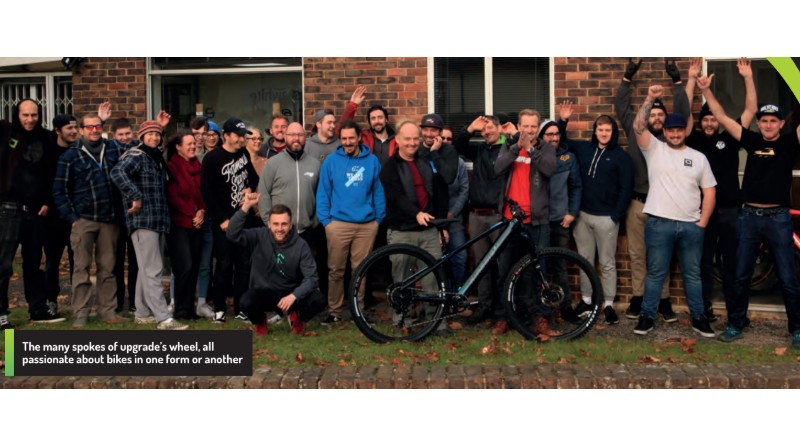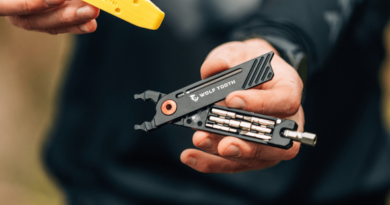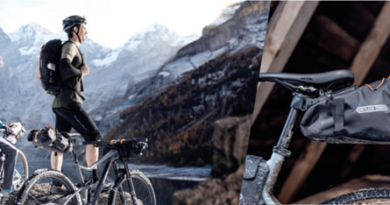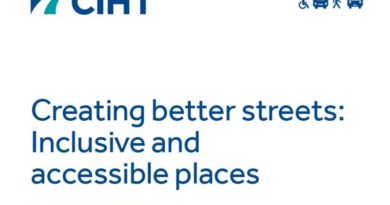Upgrade Bikes on becoming a specialist in adventure cycling
It’s fair to say that in its 25 years Upgrade Bikes has created some iconic products, built numerous brands and put plenty of business through IBD tills. CI.N documents the product, the people behind iconic designs and the passage to becoming known as a specialist in adventure cycling…
Who is upgrade?
Over the 25 years the business has existed that question would perhaps have gifted you a different answer for the passing of each year. In the beginning it was Damian Mason and Matt Ryley’s collaboration on a BMX frame and latterly a pedal that would go on to become a true icon. To this day DMR is known as the enduring dirt specialist, but by becoming a distributor for other labels the Upgrade of today has morphed into something of a specialist in off road adventure.
For context, the portfolio is now made up of Challenge Tyres, DMR, Effetto Mariposa, ISM, KinesisUK, Lauf, Lezyne, Pivot Cycles, Praxis, Sector Wheels, Tektro, TRP, Reynolds, Ritchey, RWD, Trust, X-Fusion and new to the portfolio this month, Nutcase Helmets. There are a few themes that tend to link the Upgrade portfolio and in recent years bike shops specialising in CX and gravel have been particularly well served. As build kits go, who wouldn’t want the choice of either Lauf, Ritchey or Kinesis as a foundation; the reputation of Challenge Tyres to roll on and a choice of Lauf, Trust or X-fusion to iron out the bumps in the trail? These are specialist products that require specialist knowledge and that, from a retail perspective, is an excellent accompaniment to the bread and butter sales of DMR pedals that have provided so consistently over the years.
But to answer the question of what makes up the Upgrade formula of today, marketing and senior brand manager Rory Hitchens provides us with an alternate view. “The Upgrade structure can be described with a bicycle wheel as its analogy. Our hub is made up of the brands we distribute and at the centre of that is the axle which are our house brands on which the company was founded. Our people are the spokes. Occasionally we lose a spoke, but the wheel still runs true as remaining spokes supports one another.
Our dealers are represented by the nipples, connected to the company by each staff member and critical to the working of the wheel. I think of our dealers as high quality, long lasting brass nipples that don’t corrode and make for a reliable wheel. The rim represents all of Upgrade’s products, connecting our dealers with the end customer. The tyre represents the customer, with the tread pattern as their cycling experience.
“The Upgrade wheel rolls on a magic tyre that has the perfect tread for every type of cycling. The air inside the tyre represents Upgrade’s expert sales and marketing activity, keeping the riding experience ‘pumped’ and the wheel rolling along for that perfect ride.”
Hitchens’ analogy works incredibly well as a means to say Upgrade is here to support every part of the wheel. All the parts are interdependent, like an ecosystem they work in harmony when the relationship between each part is well fitting and well maintained. If any one part is not 100%, the wheel keeps rolling just fine and when all parts are in perfect tension with each other, it’s an unbeatable wheel.
Supporting the dealer remains at the core of Upgrade’s business function, ever more so in the face of increased challenges managing the profitability expectations of each of its business partners. Upgrade could very easily have got carried away with its early success, but has instead carefully managed its progression by design.
“I think the rise and fall of the Sick Bicycles brand recently is perhaps a lesson in the risk attached to growing too fast. It’s very tempting to get in over your head,” starts MD and head of product design, Damian Mason. “This industry attracts a certain breed of enthusiast and while that’s one of the things that makes it a great business to work within, it can come at the expense of business savvy. With Upgrade the intention has always been to stick around for the long haul and so we’ve dug in and built up at a sensible pace.
“Business changed at the arrival of the internet, retail in particular changed, with the new ability to communicate a message.” adds Mason. “Today you can start a company and quickly get selling a lot faster than when Matt (Ryley) and I started out in 1995. Business is full of challenges. At present we have to contend with making sure everybody is able to earn a decent profit margin and on some products it’s getting harder to have multiple links in the chain, but for a portfolio like ours the specialist retailer is key to most of Upgrade’s products.”
The conversation veers towards the recipe for success in a fast-changing world with the conclusion that nobody is guaranteed success if they don’t adapt and learn. “A community built around enthusiasm for the product is essential, but just as important is business savvy. A well-run workshop trade and sensible recruitment seem to be key. Local to us in West Sussex are South Downs Bikes, a great example of a vibrant bike shop business,” says Mason. “From a distribution point of view the challenges are many-fold; currency, Brexit, High Street decline, the ability to forecast – it’s not a case of big forward orders placed regularly like it used to be – so constant adaptation is key.”
Bike shops come in all shapes and sizes and just 100 metres down the road from Upgrade is Stan’s Bike Shack, making a living out of being a destination specialising in great coffee, home-made cake and cycle spares. For this hybrid business it was simply about choosing a location on a popular cycle route and becoming a mid-ride desti- nation. With Lezyne bike racks outside and free ABUS locks for customers it’s a simple yet effective lure for footfall. They are even looking into power points for e- Bikes now so customers can extend their range.
For Upgrade the diversification of the bike retail business has meant watching market trends closely. “We’re seeing a shift away from shops tying up lots of cash in bike commitments as that can really harm cash flow to get in some of the more every day and profitable products. At Upgrade we’ve a mix of specialist product from which you can build a successful destination bike store with high margin, quick sell through products like Leyzne and DMR for starters.
“Undoubtedly the onus is on the distributor to hold more of the stock nowadays and with that comes logistical challenges. But Upgrade has clearly invested. Walking the warehouse the use of barcoded scanning makes warehouse picker’s lives efficient when managing the passage of stock in and out. On the day of our arrival a 40ft container is impressively unloaded in the blink of an eye.
“Mark Chan, one of our two purchasing managers, has helped us make the necessary changes to reduce the slow moving product lines and so the Upgrade business is running very efficiently and profitably, despite the challenges the market faces,” says Hitchens. “With the time and resource saved we’re now identifying areas where the business can improve for our customers. For example, we identified recently an increased demand for smaller frame sizes on Kinesis, something we’ve attributed to more women coming in to cycling; gravel, in particular.”
From Kinesis there will soon be new mid-range complete bikes that aim to make the brand more acces- sible for the masses. Due in stock by January, look out for the 1x-specific R1x complete, a bike that has just won a group test in Cycling Plus magazine against the likes of Cannondale and Ribble, before it’s even in-store. R1x is billed as a bike influenced by the RTD and 4S road frames, but with at a £1,500 complete bike price tag. Attracting a new body of cycling customers is in itself a trend and within that there’s no escaping one market movement… e-Bikes.
The dawn of e-Bikes under Upgrade
Turning heads at the Cycle Show was somewhat of a departure for KinesisUK and indeed Upgrade Bikes, an e-MTB under the RISE banner. It’s not a project that the design minds at Upgrade have jumped into, in fact there was a certain amount of biding time by Damian Mason before greenlighting a concept that had been three years on the drawing board.
As you’ll see on the cover of this very magazine, the RISE is now in production and will be a key feature at CoreBike show with pre-ordered stock expected in March. While a departure in terms of pedal-assistance, this bike is actually Upgrade through and through.
“The hardtail is especially loved in Britain and Upgrade has a long history building some award-winning hard- tails between the DMR and KinesisUK brands, starting all the way back with the first BMX frame we produced when the company started 25 years ago; it’s in our blood,” says Mason. “We’re particularly well positioned in that the big boys don’t see the value in looking too hard at something that is in a sense a UK niche and that to produce a project like this requires a certain level of financial clout, something Upgrade is appropriately sized to deliver. The RISE is therefore a category defining new-breed e-trail hardtail designed for the very worst the British winter has to throw at it.”
Part of the reason why we’ve waited until 2019 to see a first glimpse is largely down to Upgrade waiting for the right motor and battery system to integrate. Weight distribution, sealing of electrics and specifically geometry compromise were all factors that weighed heavily in the decision to pull the trigger now. In a nutshell, Mason wasn’t willing to produce a hardtail that didn’t ride exactly like some of his famously agile predecessors. Prototypes with other motor systems were tested and rejected.
“It’s all about the bike,” says Mason. “Progressive is a loose term nowadays, but the way we’ve sized the RISE by reach (L1; L2; L3; L4) as opposed to the usual S, M, L formula, shows our geometry methodology. Customers very much buy mountain bikes by the geo-numbers now and with the RISE we firmly believe we are on-point. The RISE feels nimble and very planted, yet an e-Bike you can still pop and hop. As Upgrade’s digital marketing manager (and expert mountain biker), Tom Catton explains “The Fazua system is perfect for the RISE and inspired our marketing strapline – Be a rider, Not a passenger”.
With the Fazua system there’s even the option to remove the battery/motor unit and ride the RISE as a normal bike without the extra weight. There is also a higher spec option with SECTOR 9i Carbon-Innegra carbon wheels, offering the customer the chance to drop the weight and up the spec for £4,400 at retail. We’re told the RISE will be a member of a family, perhaps stretching to four bikes deep by this time next year.
“There will be a further launch at CoreBike,” says Mason “and the near future will almost certainly see us debut both an e-Gravel bike and a flat-bar All-Road bike. Further down the line I want to address the transport- commuter space with something affordable.”
With Leyzne representing a significant percentage of Upgrade’s business, it is speculated that Lezyne’s OEM lighting business might somehow be integrated, but the insight CI.N gains is pitched as “thinking out loud”. Upgrade’s Fazua driven Rise, which will be the first in a series of electric bikes designed and assembled in house.
Likewise, the prediction that down the line the Upgrade bike catalogue may be approximately 70:30 weighted pedal power to electric is only an estimate. It’s clear that Mason would like to play a part in delivering a transport bike in the not too distant future, however. “If we’ve any chance of getting to carbon neutrality in the UK everyone will need to ditch the car for a portion of their journeys. The bike is particularly hard to beat as a replacement transport option,” he says.
“Ultimately the Government ought to be more helpful in developing cycle to work incentives and infrastructure. From our point of view, being able to develop something for the non-cyclist as a means to get around is exciting; perhaps they can become enthusiasts in time too.”
On a similar tack the new addition of Nutcase Helmets to Upgrade’s portfolio, another CoreBike debut, will again address a new customer. Primarily this is a three-tiered urban helmet label with the USP of each helmet carrying MIPS technology. Higher in the line is a product that Upgrade sees as another inroad into that customer who doesn’t necessarily want to be known as a cyclist, but that wants to use a bike for transport and would prefer to be seen and safe doing so.
Nutcase’s fourth tier helmet in their range is the brand new VIO helmet, retailing at £150, with rechargeable lighting built in, adding new levels of safety for commuter cyclists. Speaking on the addition of Nutcase Upgrade’s Matt Ryley is enthusiastic about both the proposition for the bike shop and consumer: “Hailing from the global cycling hub that is Portland, Oregon USA, the thought that has gone into the Nutcase designs is immense. At the rear of the helmet they’ve laid out the closure system so that a ponytail goes through without it snagging. The vents are perfectly spaced for a U-lock and the Fidlock magnetic buckle system is ideal as children can operate it easily and its does not pinch their skin ever.
Each Little Nutty helmet and above is also supplied with a visor, so the value for money here is strong even before we’ve mentioned that Nutcase is the only helmet brand to use MIPS as standard across the whole of its range. It’ll really help brighten up store slatwall too with many designs to choose from plus a matching bell programme.”
For the shop there’s no MOQ while a stocking order of just twelve helmets offers an introductory 52% margin until Easter 2020. Larger accounts can even explore the bespoke helmet design route for an MOQ of just 300 pieces. Upgrade suggest that in time that figure could result in IBD exclusive UK designs. Stock is expected by March, yet pre-ordering is live now and highly encouraged.
Product aside, why do business with Upgrade?
Hitchens concludes: “With very few exceptions you’ll always be speaking to a bike rider. That runs through our sales team, right back to our product design and we’re supporting some big names in cycling who have direct input into our product development. Most notable being Brendan Fairlough and Olly Wilkens whose collaboration on the DMR Deathgrip has generated a sub-brand of the 25yr old marque. Matt Gray, our head of creative, has an uncanny ability to predict colour and finish trends for our bikes.
The RISE e-bike for example showcases our “Galatic” tri-colour iridescent paint. We all buy with our eyes and first impressions always count on the shop floor, boring and grey we don’t do. We’re careful not to over burden our accounts too, which can be very attractive for our dealers in the current climate. Now, with the addition of Nutcase helmets, there are very few reasons not to do business with Upgrade. Our chat line, phone line and sales team are open to hearing from existing and new dealers.”



